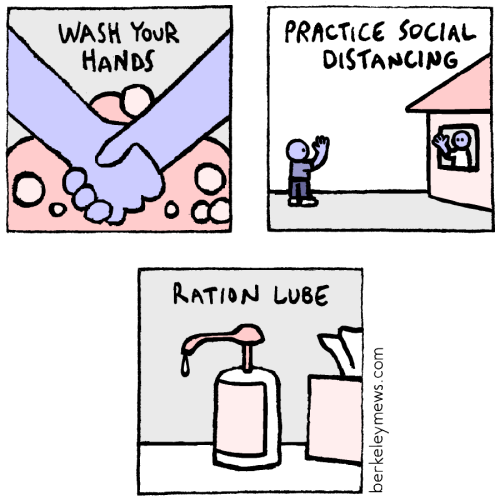-
chevron_right
MPA & IPR Center Tackle ‘Holiday’ Piracy With New PSA Campaign
news.movim.eu / TorrentFreak · Friday, 17 November - 12:13 · 4 minutes
 In recent years copyright holders have tried many things to dissuade the public from visiting pirate websites.
In recent years copyright holders have tried many things to dissuade the public from visiting pirate websites.
Simply stating that piracy is illegal doesn’t appear to work very well, so this type of messaging often tries to appeal to other emotions.
For example, anti-piracy campaigns frequently stress that piracy hurts normal workers as it costs the entertainment industry thousands of jobs. Another strategy is to scare the public directly, by pointing out the ills people may encounter on pirate sites.
‘Holiday’ Piracy PSAs
This latter strategy continues to gain traction and it’s also the main focus of a new public service announcement (PSA) campaign launched by the U.S. Government’s Intellectual Property Rights Coordination Center ( IPR Center ) and Hollywood’s Motion Picture Association ( MPA ).
There are two videos, both set to appear in a short and longer version. The shorter 15-second clips are intended for social media, where they will be circulated in the coming weeks.
The gist of the PSAs is that people who use pirate sites and services to watch online entertainment risk running into malware, identity theft, and credit card fraud. This is illustrated quite dramatically, by burglars who raid the home of a happy couple enjoying an unreleased film from a pirate source.
Interestingly, the video specifically (yet indirectly) suggests that a VPN service can’t do much to protect against these risks. Here’s the relevant dialog.
Man: Check this out. (starts film)
Woman: I didn’t even know this was out yet.
Man: It’s not, but I have my ways.
Woman: Are you sure that’s safe?
Man: I have a VPN, we’re good.
The VPN doesn’t stop people from physically entering your home, as the PSA depicts. And if we follow this analogy, it’s also true that VPNs can’t stop identity theft or malware, although some offer separate protection tools against the latter.
The second PSA is a message from IPR Center director Jim Mancuso, who issues a straightforward warning, again focusing on malware and fraud.
“If you watch pirated films or TV shows you could be exposing yourself to credit card fraud, malware or worse. Why deal with that when you could be watching your favorite series and films on legitimate platforms? Don’t let anyone ruin your screen time,” Mancuso says.
Both PSAs point people to the Stream Safely campaign site which guides people to legal sources. In addition, the site provides additional information on piracy and file-sharing technologies.
Torrenting Isn’t Illegal
The Stream Safely site points out the potential risks of piracy but it doesn’t condemn file-sharing outright. For example, it acknowledges that downloading torrents isn’t by definition illegal, it depends on what people share.
Legal torrenting can be a good way to get large legitimate files, the website reads, adding that “generally speaking, sharing files across an internet connection is legal, so long as the files being shared aren’t themselves illegal and/or copyright law isn’t being violated.”
This language is paired with obligatory malware warnings and highlighted legal risks, including “copyright trolls” who sue people for allegedly downloading pirated films.
“[L]egal trouble is becoming more common for those who are torrenting illegal content, as internet service providers (ISPs) and copyright trolls get more and more aggressive in tracking down and prosecuting illegal torrents,” the website warns.

In summary, the campaign aims to point out that piracy isn’t risk-free. It appears to be aimed at casual pirates, who may not be as tech-savvy and therefore more at risk of running into trouble.
“Many consumers remain unaware of the risks involved in streaming or downloading pirated films. There are piracy sites that appear legitimate and safe, but most are operated by global crime syndicates,” says Jan van Voorn, MPA’s Chief of Global Content Protection and head of ACE.
Nuance
The main message of the PSAs is that “watching pirated content is never safe”. This is a conclusion we have seen in many industry reports over the years and while it’s certainly true there are elevated risks, there have been more nuanced voices too.
For example, we previously heard from anti-virus experts , who pointed out that email is likely a higher risk factor than pirate streaming sites. In addition, research from the EU Intellectual Property Office previously concluded that not all pirate sites are malware-ridden.
“At present, suspected copyright-infringing websites and streaming services are not normally considered to be dominant sources of malware or otherwise unwanted software distribution,” the research found.
That research may be dated by now, of course, and there are thousands of pirate sites, all with a unique risk profile. However, this nuance, understandably, didn’t make it into the Holiday anti-piracy PSAs.
In summary, there is at least one conclusion we can safely draw. Those who use legal streaming services such as Netflix, Amazon Prime, Disney+, and HBO are less likely to run into trouble than those who use pirate sites and services.
From: TF , for the latest news on copyright battles, piracy and more.


